Stories
PCC workshop on citizen technoscience and frugal innovation in Latin America and the Netherlands
On April 3 and 4, a workshop on citizen technoscience and frugal innovation in the context of environmental degradation took place at ISS. The event was organized by Prince Claus Chair holder Sebastián Ureta and PCC-ISS postdoctoral researcher Mandy Geise, with contributions from several ISS researchers, including as panelists and speakers.
The workshop took place within the Prince Claus Chair on Equity and Development (2023-2025) and was made possible with support from Open Science NL (NWO).
The workshop brought together researchers, practitioners and civil society actors working on citizen science and frugal innovation in Latin America and the Netherlands. Different sessions and formats provided a platform for reflection, knowledge exchange and the co-creation of collaborative pathways. Participants explored the opportunities and challenges for citizen technoscience and frugal innovation to support citizens, practitioners, researchers and policymakers in addressing environmental challenges through accessible technologies. The workshop highlighted mutual learning and collective strategies to strengthen the sustainable use of technologies while being attentive to the multiple ways in which they might generate impact.
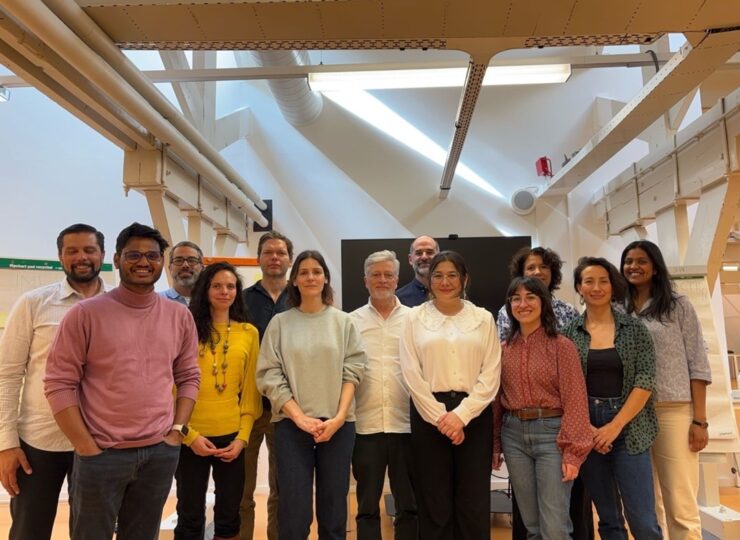
Opening the event, Rosalba Icaza Garza, Deputy Rector of Research Affairs and Professor of Global Politics, Feminisms and Decoloniality at ISS, reflected on the role and potential impact of citizen science and technologies in our current social, political and ecological moment. Sebastián Ureta provided an introduction to the concept of citizen technoscience, highlighting its transformative potential. Mandy Geise shared insights and reflections drawn from the Prince Claus Chair research on the use, impact and role of technologies in three citizen technoscience initiatives.
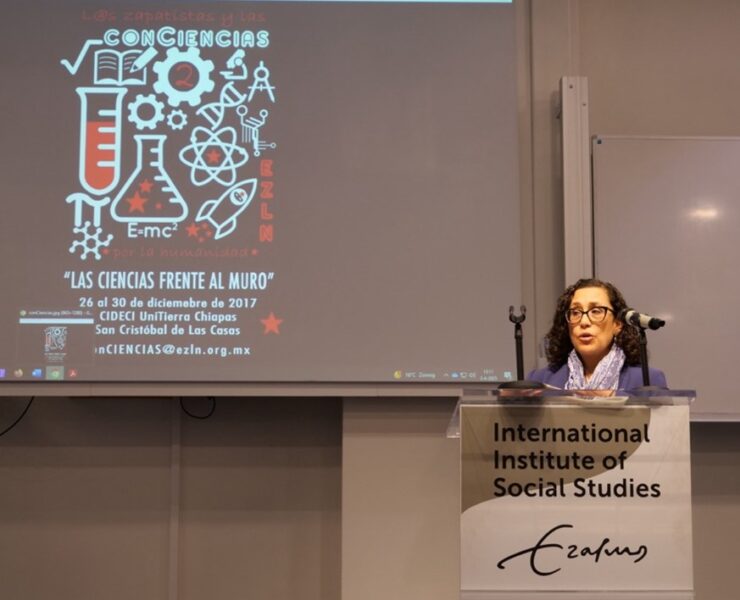
The coordinators of those initiatives talked in detail about their work. Arturo Hernández Velasco (Comunidad y Biodiversidad) discussed how fishing communities in Mexico monitor water quality, biodiversity and fish populations. Maria José Molina (AstraCodex & Rally Femenino) spoke about the training of women in the use of geospatial technologies, including in the development of their own prototypes, in Costa Rica. Sebastián Ureta reflected on the process of developing a low-cost and easy-to-use soil testing kit and participative community workshops to assess soil in areas with long histories of pollution and mining in Chile.
In an engaging discussion, the presenters and audience talked about the impact of citizen science and the different interests and uses technologies – and the data they produce – can serve in monitoring and addressing environmental issues. The conversation highlighted how the value and function of citizen science and technology are deeply shaped by political and social contexts – and questioned whether new technologies and data are always necessary or beneficial. They might also create additional burdens or risks for citizens, practitioners and researchers. A key tension highlighted was the gap between small-scale initiatives and broader systemic change, including the challenge of translating citizen science and frugal innovation into policy and institutional frameworks. The discussion also addressed the difficulty of embedding these practices in long-term strategies and the importance of creating stronger connections between different local efforts as well as with larger social, scientific, political and environmental movements.

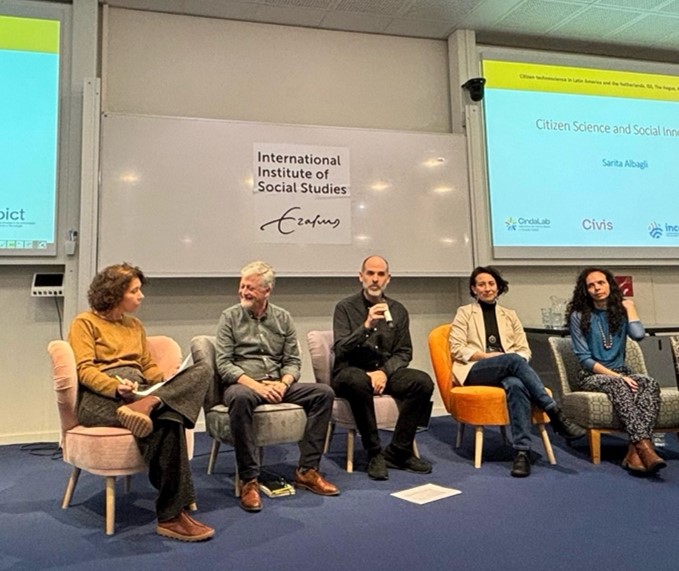
The first day concluded with a panel with practitioners and researchers active in citizen science and frugal innovation networks:
- Sarita Albagli (Citizen Science Platform at the Brazilian Institute of Information in Science and Technology)
- Peter Knorringa (International Centre for Frugal Innovation & ISS)
- Karen Soacha Godoy (Latin American Network for Participatory Science & Institut de Ciéncies del Mar)
- Allan Báez Morales (Santa Clara University Frugal Innovation Hub & Latin American Network for Frugal Innovation)
- Maria Alejandra Pineda, (Latin American Network for Frugal Innovation & Institución Universitaria Politécnico Grancolombiano)
After sharing their experiences within these networks, panelists discusssed extending and scaling citizen science and frugal innovation, including sustainability and the mobility of technologies between places and contexts.
Speakers and panelists were in conversation with Birendra Singh (ICFI & WUR), Michiel van Oudheusden (Athena Institute, VU Amsterdam) Shachi Mokashi (Athena Institute, VU Amsterdam), Janneke Elberse (RIVM), Chiara Stenico (EUR) and Ana Barbosa Mendes (EUR).
On the second day, these participants worked in small groups to reflect on three core themes:
- Interconnections between citizen science and frugal innovation
- The meaning of impact and how to understand and demonstrate it
- Building meaningful collaborations
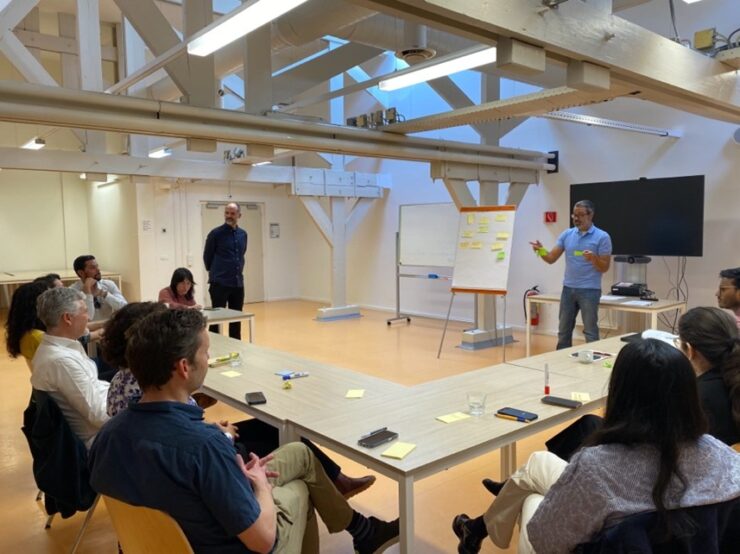
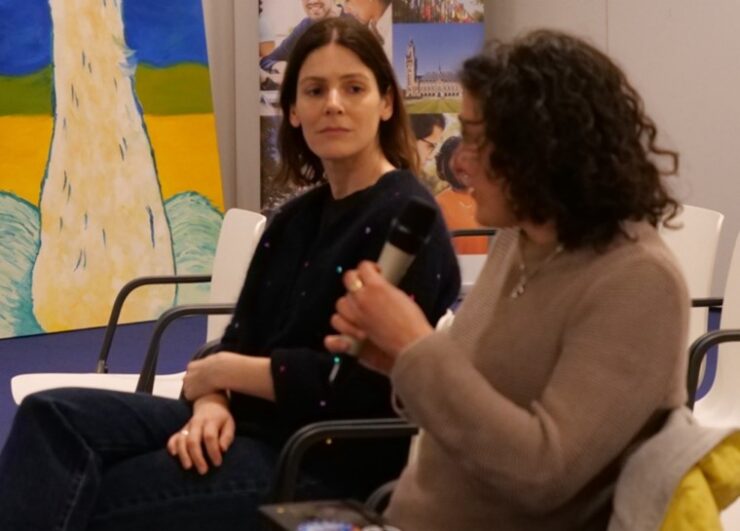
Citizen science and frugal innovation share similarities and differences, but both offer communities tools and knowledge to engage in more open forms of science and technology. Participants discussed ways to connect these practices, linking data, infrastructure and perspectives as potential foundations for future collaboration.
For citizen science and frugal innovation projects to survive and thrive beyond their initial stages, sustainability and adaptability might be as important as innovation. Ensuring long-term impact calls for a cultural shift across institutions to secure ongoing support, resources and engagement.
Participants furthermore proposed ways for knowledge sharing between initatives to avoid the repeated reinvention of the wheel.
The workshop discussions will inform ongoing conversations amongst participants and other key partners and support further collaboration between those working at the intersections of citizen science, frugal innovation and environmental degradation.
We thank all participants on both days for their contributions and the engaging discussions.